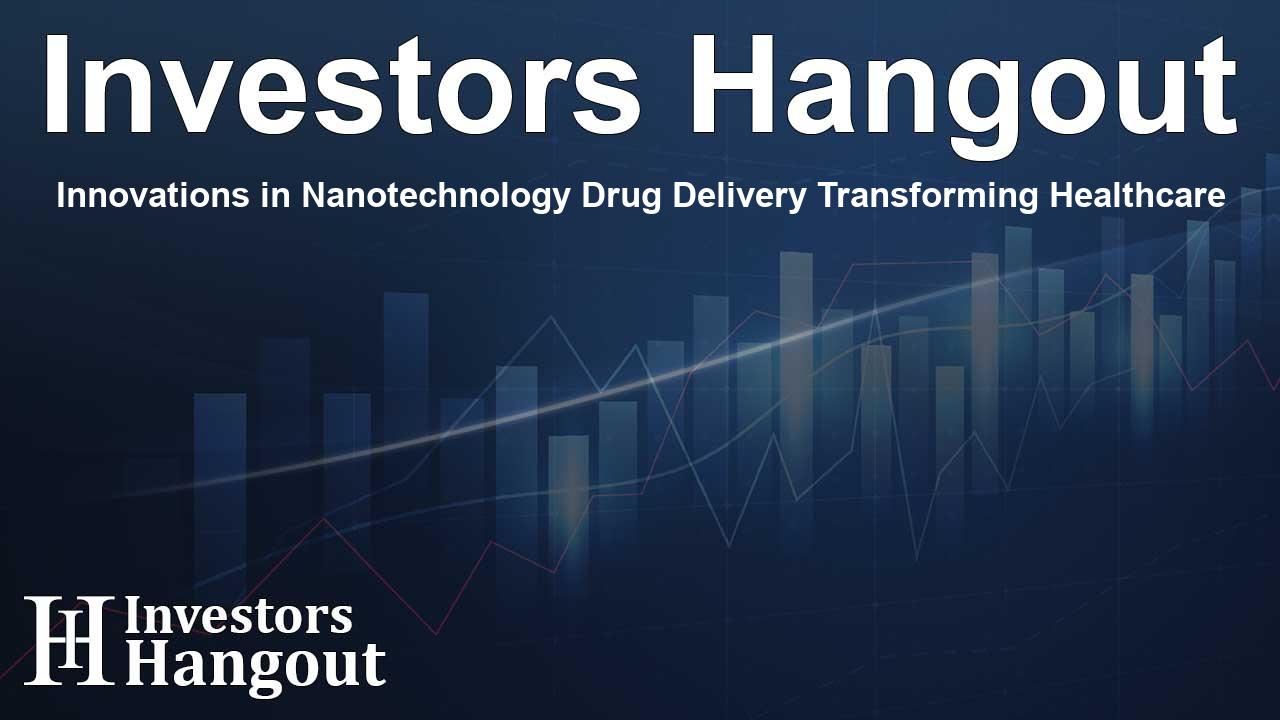Innovations in Nanotechnology Drug Delivery Transforming Healthcare

Future Insights into the Nanotechnology Drug Delivery Market
The global Nanotechnology Drug Delivery market is set for an impressive transition, with recent reports highlighting its growth from USD 95.7 billion in 2023 to a staggering USD 213.2 billion by 2032. This ambitious forecast is attributed to a robust CAGR of 9.3% during the period from 2024 to 2032. The driving forces behind this expansion include rising chronic diseases and significant advancements in delivery systems.
The Importance of Nanotechnology in Drug Delivery
Nanotechnology is revolutionizing the way medications are administered, providing targeted delivery that enhances accuracy and effectiveness. By harnessing the capabilities of nano-sized carriers, such as liposomes and polymeric nanoparticles, healthcare providers can deliver treatments directly to affected areas. This has been a game changer in areas like oncology, cardiovascular, and neurological treatments, significantly increasing the bioavailability of various drugs while simultaneously minimizing side effects.
Growing Demand for Precision Medicine
As healthcare shifts toward personalized treatment plans, nanotechnology plays a crucial role in crafting highly specialized drug delivery systems aimed at individual patient profiles. These systems can be tailored based on a patient's unique genetic makeup and health conditions, ensuring that treatments are not only effective but also limited in adverse effects. This level of customization presents a significant opportunity for advancements in the Nanotechnology Drug Delivery market.
Challenges in Nanotechnology Drug Delivery
Despite its tremendous potential, the integration of nanotechnology in drug delivery is not without its challenges. Some nanomedicines can be complex, necessitating thorough evaluation of their components to avoid complications in production and efficacy. These complexities could impact nanotechnology's acceptance within the drug delivery industry, requiring careful consideration and ongoing research to ensure regulatory compliance and safety.
Market Growth Driven by Chronic Diseases
The rising prevalence of chronic illnesses such as cancer, diabetes, and neurological disorders is a significant contributor to the growth of the nanotechnology drug delivery market. Patients suffering from these conditions require innovative treatment strategies that traditional methods have struggled to address. The use of nanoparticles in drug delivery systems addresses some of these challenges by enhancing stability and enabling controlled release, making it easier to manage and treat these diseases effectively.
The Impact of Oncology Nanomedicine
Oncology remains one of the sectors most impacted by advancements in nanotechnology. By facilitating targeted delivery of therapeutic agents directly to tumor cells, nanomedicine is transforming cancer treatment, improving drug solubility, absorption, and the controlled release of medications as needed. This innovation is key to mitigating the side effects often associated with conventional treatments such as chemotherapy.
Prominent Players in the Nanotechnology Drug Delivery Market
Key players in the nanotechnology space are vital to the market’s expansion. Notable companies include AstraZeneca and Bausch Health Companies Inc. These organizations are leading the charge in developing innovative therapies that not only enhance patient outcomes but also push the boundaries of what is achievable within the field of personalized medicine.
Recent Innovations and Acquisitions
For instance, AbbVie has recently enhanced its capabilities through the acquisition of a company specializing in technology aimed at crossing the blood-brain barrier. This strategic move places AbbVie at the forefront of treatment for central nervous system disorders, signaling a strong commitment to innovation in drug delivery methods.
Geographic Insights and Market Dynamics
The North American region is expected to dominate the Nanotechnology Drug Delivery market, accounting for as much as 40%-45% of the global share due to its strong research infrastructure and investment in innovative therapies. The continuous influx of investments from both private and public sectors supports extensive research and development activities, which further cements North America's role in pioneering drug delivery technologies.
Frequently Asked Questions
What is the expected growth of the Nanotechnology Drug Delivery market?
The market is forecasted to grow from USD 95.7 billion in 2023 to around USD 213.2 billion by 2032, reflecting a CAGR of 9.3%.
How does nanotechnology enhance drug delivery?
Nanotechnology allows for highly targeted delivery of medications to specific cells or tissues, enhancing treatment efficacy and reducing side effects.
What factors are driving the rise of nanotechnology in medicine?
Increased prevalence of chronic diseases, advancements in nanotechnology, and the demand for precision medicine are key drivers.
Who are the major players in the Nanotechnology Drug Delivery market?
Major companies include AstraZeneca, Bausch Health Companies Inc., and AbbVie, among others, all making significant contributions to the field.
What challenges does nanotechnology face in drug delivery?
The complexity of some nanomedicines necessitates thorough evaluation and could impact their acceptance and integration into mainstream medicine.
About Investors Hangout
Investors Hangout is a leading online stock forum for financial discussion and learning, offering a wide range of free tools and resources. It draws in traders of all levels, who exchange market knowledge, investigate trading tactics, and keep an eye on industry developments in real time. Featuring financial articles, stock message boards, quotes, charts, company profiles, and live news updates. Through cooperative learning and a wealth of informational resources, it helps users from novices creating their first portfolios to experts honing their techniques. Join Investors Hangout today: https://investorshangout.com/
Disclaimer: The content of this article is solely for general informational purposes only; it does not represent legal, financial, or investment advice. Investors Hangout does not offer financial advice; the author is not a licensed financial advisor. Consult a qualified advisor before making any financial or investment decisions based on this article. The author's interpretation of publicly available data presented here; as a result, they should not be taken as advice to purchase, sell, or hold any securities mentioned or any other investments. If any of the material offered here is inaccurate, please contact us for corrections.